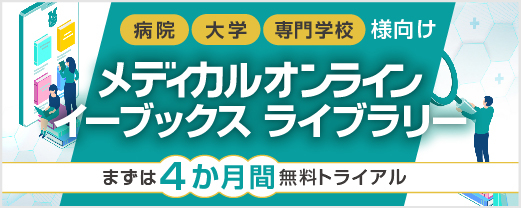アブストラクト
Japanese
| Title | 超急性期脳卒中患者家族への認定看護師による代理意思決定支援 |
|---|---|
| Subtitle | 研究報告 |
| Authors | 犬飼智子1), 渡邉久美2) |
| Authors (kana) | |
| Organization | 1)岡山県立大学保健福祉学部, 2)香川大学医学部看護学科 |
| Journal | 家族看護学研究 |
| Volume | 26 |
| Number | 2 |
| Page | 119-130 |
| Year/Month | 2021 / |
| Article | 報告 |
| Publisher | 日本家族看護学会 |
| Abstract | 「要旨」 目的:超急性期脳卒中患者の家族が行う代理意思決定において, 認定看護師が行っている看護実践を明らかにする. 方法:超急性期脳卒中治療を行う部署に勤務する救急看護, 集中ケア, 脳卒中リハビリテーション認定看護師5名に, 家族の代理意思決定場面を想起してもらい半構造化面接を行った. 録音した面接内容から逐語録を作成し, 質的内容分析を行った. 結果:5カテゴリが生成された. まず認定看護師は【家族の心情の受け止めと緩和】を行い, 精神的支援をしていた. 同時に家族のアセスメントを行い, 治療への同意ができるように家族の来院を促す等【代理意思決定に関わる家族状況の確認と調整】を行っていた. 家族への病状説明は医師のみで実施されることがほとんどであったが, 家族の言動を見逃さず注意を払いながら, 病状説明後には【代理意思決定に伴う疑問や不安の表出】を促し, 理解の程度の確認や情報提供により【病状・治療の理解の促進】を図っていた. これらの支援は患者の治療の合間を縫って行われていた. また【家族支援の継続と調整】がなされ, スタッフへロールモデルとしての関わりによる家族支援の調整, 医療者間の情報共有によって家族支援が継続されるよう管理を行っていた. 考察:認定看護師らは, 治療開始のための初回病状説明における家族の言動を最も重視し, 表情や言動を見逃さず, 家族と接する僅かな時間を見出していた. 精神的支援, 家族システムへの介入, 情報提供が行われており, まずは「家族の安定」, そして「病状・治療等の理解」の支援が重要であると考えられた. |
| Practice | 看護学 |
| Keywords | 代理人, 意思決定, 認定看護師, 超急性期脳卒中, Surrogate, Decision-making, Certified Nurses, Hyper acute Stroke |
English
| Title | Surrogate Decision-making Support for Families of Hyperacute Stroke Patients Provided by Certified Nurses |
|---|---|
| Subtitle | |
| Authors | Tomoko Inukai1), Kumi Watanabe2) |
| Authors (kana) | |
| Organization | 1)Okayama Prefectural University, Faculty of Health and Welfare Science, Department of nursing Science, 2)Kagawa University, Faculty of Medicine, School of Nursing, Mental Health and Psychiatric Nursing |
| Journal | Japanese Journal of Research in Family Nursing |
| Volume | 26 |
| Number | 2 |
| Page | 119-130 |
| Year/Month | 2021 / |
| Article | Report |
| Publisher | Japanese Association for Research in Family Nursing, JARFN |
| Abstract | Objective: To clarify the details of surrogate decision-making support for families of hyperacute stroke patients provided by certified nurses. Methods: Semi-structured interviews were conducted with 5 nurses certified in emergency nursing, intensive care, and post-stroke rehabilitation who worked in departments providing hyperacute stroke treatment, asking them to describe the surrogate decision-making support for families that they had provided. Narratives were created from their statements recorded during the interviews to perform qualitative content analysis. Results: Five categories, explaining surrogate decision-making support for families of stroke patients provided by certified nurses, were established. [Accepting the emotions of families and alleviating their distress] and providing mental support for them were their first approaches. At the same time, they conducted family assessment, and encouraged families to participate in the informed consent and decision-making processes for treatment, with a view to [confirming and coordinating family matters for surrogate decision-making]. To promptly provide treatment and care, patients' pathological conditions were explained to families only by doctors. However, the nurses provided their own approaches, such as paying careful attention to families' statements and behaviors during the explanation, and [listening to their doubts and anxiety], confirming their levels of understanding, and providing them with information after it, with the aim of [promoting understanding of the pathological condition and treatment] among them. These support approaches were performed within limited time frames in between the duties of treating and caring for patients. [Continued family support and related coordination] was another approach adopted by the nurses. As a role model, they helped staff, and performed management to ensure continued family support through coordination for family support and information-sharing among medical professionals. Discussion: The nurses placed the utmost importance on families' statements during the initial explanation of the patient's pathological condition on initiating treatment, carefully observed their facial expressions, statements and behaviors, and actively communicated with them within limited time frames. As part of surrogate decision-making support for families, the nurses provided mental support, intervened in family systems, and offered information. The results suggest the importance of helping families maintain their mental stability first, and then understand patients' pathological conditions and treatment. |
| Practice | Nursing |
| Keywords | Surrogate, Decision-making, Certified Nurses, Hyper acute Stroke |
- 全文ダウンロード: 従量制、基本料金制の方共に770円(税込) です。
参考文献
- Borhani, F., Abbaszadeh, A.: Factors Affecting the Nurse-Patients' Family Communication in Intensive Care Unit of Kerman: a Qualitative Study, J Caring Sci. 3(1): 67-82, 2014.
- Cai, X., Robinson, J., Muehlschlegel, S., White, D. B., Hollo-way, R. G., Sheth, K. N., Fraenkel, L., Hwang, D. Y.: Pa-tient Preferences and Surrogate Decision Making in Neuroscience Intensive Care Units. Neurocrit Care, 23(1): 131-141, 2015.
- Flynn, D., Knoedler, M. A., Hess, E. P., Hassan, M. M, Er-win, P. J., Montori, V. M., Thomson, R. G.: Engaging Pa-tients in Health Care Decisions in the Emergency De-partment Through Shared Decision-making: A Systematic Review, Academic Emergency Medicine, 19(8): 959-967, 2012.
- 飯塚裕美, 井上智子 : 緩和優先医療(Comfort Measures Only)を提案された集中治療室入室中患者の家族の体験と看護支援の検討, お茶の水看護学雑誌, 7(2): 16-24, 2013.
- 稲垣美紀 : 心臓血管外科手術を受ける患者および家族の意思決定上のサポートシステムに関する看護師の認識, 日本循環器看護学会誌, 7(2): 18-25, 2012.
残りの20件を表示する
- 石塚紀美, 井上智子 : 救命救急領域における家族の代理意思決定時の思いと看護支援の実態, 日本クリティカルケア看護学会誌, 11(3): 11-23, 2015.
- Iverson E, Celious A, Kennedy CR, Shahane E, Eastman A, Warren V, Freeman BD: Factors affecting stress experi-enced by surrogate decision maker for critically ill pa-tients: implications for nursing practice, Intensive Crit Care Nurs, 30(2): 77-85, 2014.
- 上澤弘美, 中村美鈴 : 初療で代理意思決定を担う家族員への関わりに対して看護師が抱える困難と理由, 日本クリティカルケア看護学会誌, 9(1): 6-18, 2013.
- Kentish-Barnes, N., Lemiale, V., Chaize, M., Pochard, F., Azoulay, E.: Assessing burden in families of critical care patients, Crit Care Med, 37(10): 448-456, 2009.
- 厚生労働省 : 平成30年(2018)人口動態統計月報年計(概数)の概況, https://www.mhlw.go.jp/toukei/saikin/hw/jinkou/geppo/nengai18/dl/h6.pdf
- 厚生労働省 : 平成29年(2017)患者調査の概況 推計患者数, 表2 傷病分類別にみた施設の種類別推計患者数, https://www.mhlw.go.jp/toukei/saikin/hw/kanja/17/dl/01.pdf
- 黒田和明, 黒田裕子 : 重症患者家族のニーズに対するクリティカルケア看護師の認知構造モデルの構築, 日本クリティカル看護学会誌, 8(1): 17-28, 2012.
- Lam, S. M., So, H. M., Fok, S. K., Li, S. C., Ng, C. P., Lui, W. K., Heyland, D. K., Yan, W. W.: Intensive care unit family satisfaction survey, Hong Kong Med J, 21(5): 435-443: 2015.
- Loghmani, L., Borhani, F., Abbaszadeh, A.: Factors affect-ing the nurse-patients' family communication in inten-sive care unit of kerman: a qualitative study, J Caring Sci, 3(1): 67-82, 2014.
- Murtagh, M. J., Watson, D. L. B., Jenkings, K. N., Lie, M. L. S., Mackintosh, J, E., Ford, G. A., Thomson, R. G.: Situa-tionally-Sensitive Knowledge Translation and Relational Decision Making in Hyperacute Stroke: A Qualitative Study, PLoS ONE, 7(6), e37066: 1-10, 2012.
- Majesko, A., Hong, S. Y., Weissfeld, L., White, D. B.: Identi-fying family members who may struggle in the role of surrogate decision maker., Crit Care Med, 40(8): 2281-2286, 2012.
- 日本脳卒中学会 脳卒中ガイドライン委員会 : 脳卒中治療ガイドライン2015 追補2017対応, 協和企画, 東京
- 緒方久美子, 佐藤禮子 : ICU入室患者の家族員の情緒的反応に関する研究, 看護科学会誌, 24(3): 21-29, 2004.
- Silberfeld, M., Grundstein-Amado, R. Stephens, D., Deber, R.: Family and physicians' views of Surrogate deci-sion-making: the roles and how to choose, Int Psycho-geriatr, 8(4): 589-596, 1996.
- Schenker Y, Matoka CM, Dohan D, Arnold GA, White DB: I don't want to be the one saying 'we should just let him die': intrapersonal tensions experienced by surrogate de-cision makers in the ICU. J Gen Intern Med, 27(12): 1657-1665, 2012.
- 山勢博彰 : 重症・救急患者家族のニードとコーピングに関する構造モデルの開発-ニードとコーピングの推移の特徴から-, 日本看護研究学会雑誌, 29(2): 95-102, 2006.
- Warrillow, S., Farley. K. J., Jones, D.: How to improve com-munication quality with patients and relatives in the ICU, Minerva Anestesiol, 82(7): 797-803, 2016.
- 山勢博彰 : 救急・重症患者と家族のための心のケア(第1版), 128-131, メディカ出版, 大阪, 2010.
- 山勢善江, 山勢博彰, 立野淳子 : 救急・クリティカル領域における家族看護の構造モデル, 山口医学, 62(2): 91-98, 2013.
- 横堀潤子, 井上智子, 佐々木吉子 : 救急医療での積極的治療継続の断念に関する患者家族の体験と看護師・医師の認識, 日本救急看護学会雑誌, 14(1): 10-20, 2012.



